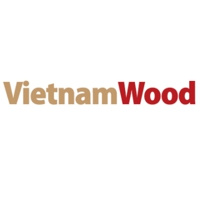- Read all
- Rice
- Fisheries
- Cassava
- Fertilizer & Pesticide
- Coffee
- Animal Feed
- Cocoa
- Seed
- Tea
- Wood
- Pepper
- Agricultural Cooperations
- Cashew
- Agricultural Investments
- Rubber
- Governmental Policies
- Sugarcane
- Agricultural Startup Ecosystem
- Corn
- Technological Innovations
- Spices
- Organic Agriculture
- Bean
- Food Manufacturing
- Fruit & Vegetable
- Agricultural Value Chain
- Flower
- Water & Waste Management
- Meat
- Processed Food
- Dairy
- Plant Originated Products
- General Agro Commodities
- Animal Originated Products
Overuse of antibiotics in food causes scare in Vietnam
April 21, 2016
Nearly 100 percent of all cattle and aquaculture farms in Vietnam have been found to be feeding their herd antibiotics to prevent diseases, according to a recent report by the country’s animal health authority.

Cattle breeders buy antibiotics from a veterinary store in District 9, Ho Chi Minh City.
While salbutamol, a chemical making livestock produce more meat, is banned and strictly monitored by authorities, the use of antibiotics is still left unregulated, sparking new fears about excessive residues in food.
Frightening numbers
Vietnam’s Department of Animal Health conducted a survey from 2015 through the first quarter of 2016 on the use of antibiotics in aquaculture farms in the country’s Mekong Delta region.
According to the survey’s results published in a recent report, 83 percent of the 139 catfish farms surveyed were found to be using antibiotics on their fish.
Notably, some of the antibiotics and antimicrobial materials used were banned or restricted substances such as Amoxicillin, Ampi, Colistin, Cephalosporin, Doxycycline,
Enrofloxacin, Sulfa, and Tetracycline.
In Bac Lieu Province in particular, 67 percent of the 218 shrimp farms were discovered to be feeding their shrimp antibiotics in the first three months of life to fight off disease.
More than 42 percent of respondents admitted to not knowing whether they were using veterinary or human medicine on their shrimp.
According to the report, Enrofloxacin, Oxytetracycline, and Tetracycline, three groups of antimicrobial materials banned or restricted for use in aquaculture, were legally imported into Vietnam in large amounts in 2015, and had been used excessively in seafood farms across the country.
According to the National Agro – Forestry – Fisheries Quality Assurance Department (NAFIQAD), a series of aquaculture export shipments by Vietnam to foreign markets have been rejected in recent years due to excessive antibiotic residues.
Nguyen Nhu Tiep, general director at NAFIQAD, said although the number of rejected shipments declined in the first quarter of 2016, it is still alarming that as many as 31 shipments were returned to Vietnam due to antibiotic contamination.
Tiep went on to raise concerns about whether such unqualified products should be sold in Vietnam.
Meanwhile, Nguyen Thanh Son, owner of an industrial chicken farm in Dong Nai, a province bordering Ho Chi Minh City to the northeast, said it was common practice for cattle farms to store large quantities of antibiotics for both periodic feeding and the prevention of epidemics.
“It is true that constant use of antibiotics would weaken the animals’ immune system and make them more dependent on the substance. Still, it can’t be helped, for a farm will go bankrupt once it stops using antibiotics,” Son said.
While authorities are turning a blind eye to the use of antibiotics in animal husbandry, many farmers justify their use by claiming that Vietnam’s atmosphere contains a lot of pathogens that harm their herds otherwise.
Not only are antibiotics used by farmers, the chemicals are also put into food manufactured by fodder companies to improve the health of livestock.
“Some foreign animal food manufacturers did refuse to put antibiotics in their products at first, but they soon followed suit after realizing that they could not compete with domestic manufacturers that did,” one chief marketing officer of a fodder company in Ho Chi Minh City said.
According to La Van Kinh, director at the Institute of Animal Sciences for Southern Vietnam, the wide use of antibiotics in animal husbandry has its roots in the people’s habit of turning to the substances whenever their herds have health problems.
Kinh added that easy access to antibiotics in the country has encouraged farmers to use them instead of focusing on disease prevention and balancing the herd’s nutrition intake to boost their immune system.
“They are not aware that excessive antibiotic residues can cause adverse health effects in consumers,” Kinh said.
A nation’s health at risk!
“In terms of scale and harmful effects, the use of antibiotics in animal husbandry is much more dangerous than salbutamol,” Nguyen Van Viet, chief inspector at the Ministry of Agriculture and Rural Development (MARD), said at a forum on monitoring banned substances and limiting the abuse of antibiotics in animal husbandry, which recently concluded in Binh Duong Province, a neighbor of Ho Chi Minh City.
According to Viet, the overuse of antibiotics in animals over many years poses tremendous health risks to the nation as a whole, as antibiotic residues in the meat could enter the human body and trigger widespread antibiotic resistance.
According to Dr. Nguyen Huu Duc, a professor at the Ho Chi Minh City University of Medicine and Pharmacy, antibiotic resistance is an extremely serious risk for community health, for it would render the current antibiotics helpless against new pathogens and viruses.
“It takes from five to ten years and a lot of money to develop a new strain of antibiotic, so if antibiotic resistance occurs, and new strains haven’t been developed yet, it would be a disaster,” Dr. Duc said.
Source: Tuoi Tre News
Related news
-
Opportunities for Long An agricultural products to enter the Korean market
Long An province invites Korean businesses to continue investing in the agricultural product processing industry, logistics, health, beauty and importing dragon fruit products, lemons, bananas, rice...August 30, 2022 -
UKVFTA Agreement opens up opportunities for Vietnam's coffee industry
British consumers traditionally drink more instant coffee than European countries. The UKVFTA agreement is opening up opportunities for Vietnam's coffee industry to enter more smoothly than the UK market.August 23, 2022 -
Vietnam and Denmark cooperate towards sustainable agriculture
In the days from August 16 to 19, 2022, the Danish business delegation in the field of Agriculture - Food will have working sessions in Hanoi and Ho Chi Minh City to exchange business and cooperation opportunities with the potential partners in Vietnam…August 18, 2022 -
Issuing 'identity cards' for shrimp seed
'One breed, two lips, three baits, four skills', is an experience passed on to each other to affirm the importance of seed in aquaculture.August 18, 2022 -
New prospects for durian: investing in technologies to boost the value
To increase the value of the commodity chain, Dong Nai province is developing regions specializing in durian cultivation and encouraging investments in durian freezing facilities.August 17, 2022
Events See more

Vietnamplas 2022 - Vietnam International Plastic and Rubber Industry Exhibition
23-03-2023 - 26-11-2022 09:00 - 17:00
Saigon Exhibition and Convention Center (SECC) – 799 Nguyen Van Linh Boulevard, District 7, City. Ho Chi Minh.

GROWTECH EXPO - FLORAPLANTEXPO 2021
02 - 05-11-2022 09:00 - 17:00
Saigon Exhibition and Convention Center (SECC) – 799 Nguyen Van Linh Boulevard, District 7, City. Ho Chi Minh.

VTG 2022
18 - 25-10-2022 09:00 - 17:00
Saigon Exhibition and Convention Center (SECC) – 799 Nguyen Van Linh Boulevard, District 7, City. Ho Chi Minh.

VIETSTOCK 2022 - SPECIALISED EXHIBITION OF LIVESTOCK, FEED AND MEAT PROCESSING IN VIETNAM
12 - 14-10-2022 08:00 - 17:00
799 Nguyen Van Linh, Tan Phu Ward, Dist. 7, Hochiminh City, Vietnam

VTG 2022
21 - 27-09-2022 09:00 - 17:00
Saigon Exhibition and Convention Center (SECC) – 799 Nguyen Van Linh Boulevard, District 7, City. Ho Chi Minh.
.png)
VIETFISH 2022
22 - 26-08-2022 09:00 - 17:00
Saigon Exhibition and Convention Center (SECC) – 799 Nguyen Van Linh Boulevard, District 7, City. Ho Chi Minh.
Business Opportunities See more
-
BURANI INTERFOOD is looking for Buyers in Vietnam
Type:
November 22, 2021
-
BURANI INTERFOOD is looking for Buyers in Vietnam
Type: Wholesaling Meat
November 22, 2021
-
BURANI INTERFOOD is looking for Buyers in Vietnam
Type: Wholesaling Meat
November 22, 2021
-
BURANI INTERFOOD is looking for Buyers in Vietnam
Type: Wholesaling Meat
November 19, 2021
-
BURANI INTERFOOD is looking for Buyers in Vietnam
Type:
November 19, 2021
-
Indian purchaser looking for high quality cashew nut kernel from Vietnam
Type: Exporting Cashew
Mar 14, 2016
534
Limitless database of qualified and verified agricultural partners
124
Exclusive buy & sell leads on specific agricultural commodities
24
Agricultural events in Vietnam and Asia Pacific region
Stay informed!
Enter your email address below to receive updates each time we publishes new content
